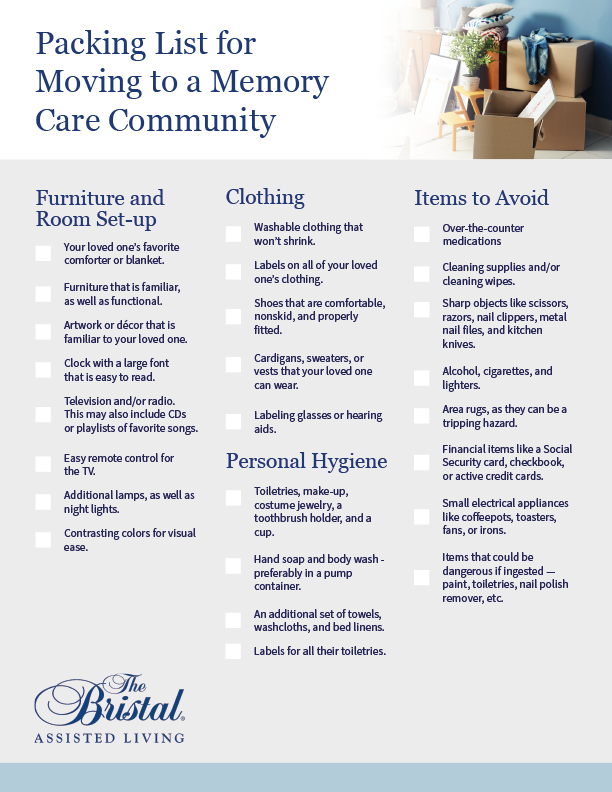Creating a Safe and Helpful Setting for Alzheimer's Care
The creation of a secure and encouraging setting for people with Alzheimer's is extremely important in improving their top quality of life. This entails not just physical adaptations within the home, such as lessening hazards and including acquainted elements, yet additionally the application of structured routines and purposeful tasks that deal with their cognitive requirements. In addition, comprehending the emotional and psychological measurements of care can substantially affect their sense of safety and security and connection. Discovering these complex methods can disclose critical insights right into reliable caregiving techniques that might change the day-to-day experiences of both patients and caregivers.
Comprehending Alzheimer's Needs
Often, individuals with Alzheimer's illness show a series of needs that require customized methods to care. As the condition advances, cognitive decrease materializes in numerous means, impacting memory, thinking, and also the capacity to carry out daily tasks. Caregivers must identify these evolving needs to provide appropriate assistance and guarantee a better of life for those influenced.
One vital aspect of comprehending Alzheimer's demands is recognizing the significance of regular and familiarity. Individuals commonly discover comfort in well-known patterns, which can reduce stress and anxiety and complication. Caregivers ought to make every effort to develop structured everyday routines that incorporate purposeful tasks aligned with the individual's rate of interests and abilities.
Additionally, reliable communication is vital. Individuals with Alzheimer's might struggle to share themselves or comprehend complex language. Caretakers should utilize simple, clear language, usage non-verbal cues, and method energetic listening to cultivate understanding and connection.
Last but not least, social and psychological requirements can not be overlooked. Supplying opportunities for social interaction and keeping relationships can significantly boost emotional wellness. Caregivers need to motivate involvement in neighborhood tasks or family members gatherings, advertising a feeling of belonging and function. Recognizing these diverse requirements is crucial for producing a supportive treatment setting.
Creating a Safe Home
Developing a risk-free home for individuals with Alzheimer's condition is crucial to decreasing risks and advertising freedom. Make sure that paths are clear and well-lit, as correct illumination reduces disorientation and boosts wheelchair.
Incorporating adaptive features is additionally vital. Set up grab bars in restrooms and near stairs, and take into consideration making use of non-slip floor coverings in damp areas. Furthermore, making use of different colors for floors and wall surfaces can help in distinguishing areas, helping to mitigate complication.
Familiarity is very important for individuals with Alzheimer's. Customizing the setting with acquainted things and photos can reinforce a feeling of belonging and safety and security - Alzheimers Care Charlotte. It is also advantageous to have a designated location for everyday activities, such as analysis or crafting, which can supply structure to their day
Finally, carrying out a protected outdoor space enables risk-free expedition while linking with nature. By attentively making the home setting, caretakers can significantly boost the high quality of life for individuals dealing with Alzheimer's disease.
Enhancing Interaction Abilities

Non-verbal communication, including facial expressions, motions, and touch, plays a vital function in communicating empathy and understanding. Keeping eye get in touch with and a calm demeanor can enhance the comfort degree of the person, promoting a sense of safety and security.
Additionally, it is vital to practice energetic listening. This includes being totally existing, showing persistence, and allowing the person to express themselves without disruption. Repetition might be required; caregivers ought to be prepared to revisit subjects or inquiries, as individuals with Alzheimer's might deal with memory recall.
Additionally, using aesthetic aids or signs, such as photographs or acquainted objects, can help with recognition and engagement. Ultimately, enhancing communication abilities is regarding developing trust and developing an environment where people feel listened to, valued, and comprehended, therefore enriching their quality of life.
Urging Social Interaction
Promoting purposeful social interactions can considerably enhance the health of people with Alzheimer's illness. Involving with others not only aids battle feelings of seclusion but likewise boosts cognitive function and emotional health and wellness. Structured social tasks, such as team video games, crafts and arts, or songs therapy, develop opportunities for citizens to attach with peers and caregivers, which can bring about improved state of mind and lowered anxiety.
Developing an inviting setting that motivates socializing is necessary. This can be accomplished by setting up common spaces that promote interaction, such as relaxing seating areas or activity spaces. Furthermore, integrating acquainted and culturally pertinent activities can spark memories and urge engagement, permitting individuals with Alzheimer's to really feel more linked to their previous experiences.
Moreover, caregivers should be trained to identify and promote social engagement amongst locals. Simple gestures, such as starting conversation or assisting in little seminar, can help people really feel valued and included. Frequently scheduled get-togethers ought to correspond yet flexible, accommodating differing degrees of capability and passion. By focusing on social interaction, we can significantly enrich the lives of those dealing with Alzheimer's, fostering a feeling of neighborhood and belonging.
Sustaining Caregiver Well-being

To support caretakers, companies ought to offer regular training and educational resources to boost their understanding of Alzheimer's condition and caregiving techniques. Supplying access to reprieve care solutions permits caretakers to take essential breaks, lowering anxiety and exhaustion - Alzheimers Care Charlotte. Additionally, fostering a neighborhood via support system can help with emotional sharing and the exchange of practical suggestions amongst caregivers, developing check here a network of mutual assistance
Psychological wellness sources, such as therapy solutions, can also be essential in resolving the psychological toll caregiving can take. By focusing on caretaker well-being, we produce an even more sustainable caregiving setting that not only benefits the caretakers themselves however also improves the overall high quality of treatment received by individuals with Alzheimer's. Ultimately, sustaining caregivers is a necessary element in promoting a effective and compassionate care setup.
Final Thought
Finally, the production of a helpful and safe setting for people with Alzheimer's is necessary to enhancing their top quality of life. By prioritizing safety and security through thoughtful style, cultivating psychological wellness with familiar components, and promoting interaction with structured regimens, caretakers can substantially affect the overall experience of those impacted by this problem. Moreover, sustaining caregiver health is vital, as it inevitably contributes to a much more effective and thoughtful care atmosphere.
Repetition may be essential; caretakers should be prepared to revisit questions or subjects, as individuals with Alzheimer's may battle with memory recall.
